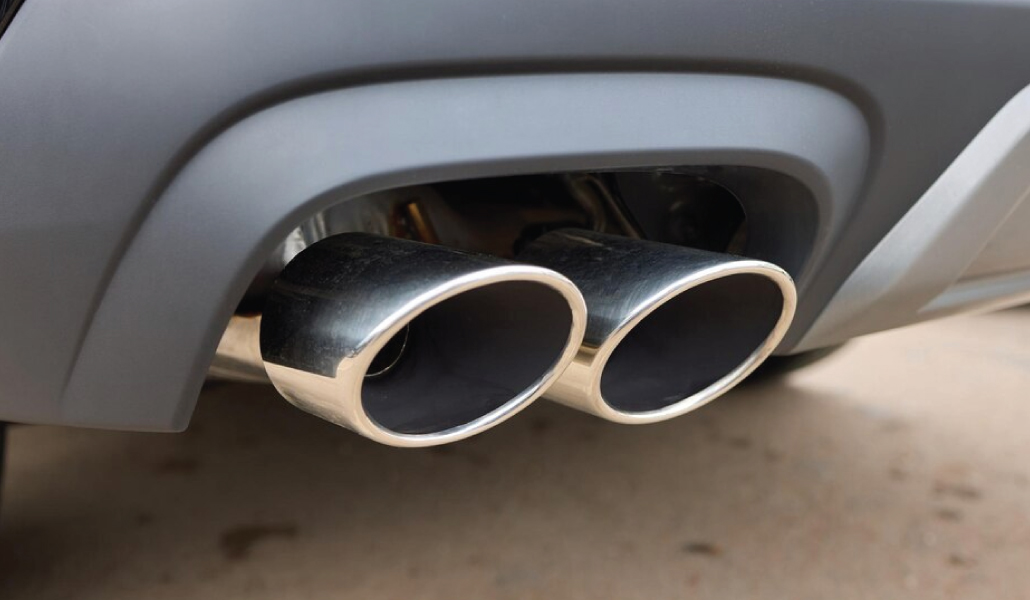
Does Exhaust Tip Change the Sound of a Car?
The exhaust system of a vehicle is important for its performance and sound. The unique noise a car’s exhaust makes can range from deep notes to higher-pitched sounds. If you’ve ever wondered how changing your exhaust tips can alter the sound of your vehicle engine, you’re not alone.
The relationship between exhaust tips and sound modification is a topic of considerable interest and debate. While some believe these tips can dramatically change a car’s exhaust sound, others argue that their impact is minimal. In this blog, we will discuss it and try to learn more about this component. So, read on to find out the answer to “Can the exhaust tip change the sound of your car’s engine?
What is an Exhaust Tip and How Does It Work?
An exhaust tip, also known as an exhaust muffler tip, is the visible part of the exhaust system that extends from the car’s muffler. Its primary purpose is to direct emission gases away from the vehicle while adding a touch of style to its appearance. Exhaust tips come in various shapes, sizes, and materials, such as stainless steel, chrome, or other metals. They can be single, dual, or even quadruple, depending on the vehicle and desired look.
However, do exhaust tips change the sound of your car’s exhaust? The answer is not straightforward. While their main function is not to change the sound, they can have a minor influence. In some cases, they may slightly affect backpressure depending on their design and size.
Common Misconceptions: Do Muffler Tips Change Sound?
Are you still wondering “Will exhaust tips change your car’s sound?” Well, one of the most common misconceptions about vehicle exhaust systems is that muffler tips or exhaust tips have a significant impact on the sound of your car. While many drivers assume that simply changing the exhaust tip will dramatically alter the exhaust note, the reality is quite different.
Exhaust tips are primarily an aesthetic upgrade, designed to enhance the visual appeal of your vehicle’s rear. In some cases, the design of the resonator exhaust tip can slightly modify the tone of the exhaust. However, the difference is often subtle and doesn’t significantly change the overall volume.
What Changes the Sound of an Exhaust?
Several components within the exhaust system contribute to the engine’s sound, and understanding these can help you achieve your desired note:
- Engine: The type and size of your engine are the primary factors in exhaust sound. Larger engines typically produce deeper, more robust sounds.
- Headers: These collect engine fumes from the engine cylinders. The design and size of the headers can modify both the power output and the sound of the exhaust.
- Downpipe: Upgrading the downpipe is one of the most effective ways to change your car’s sound. An increased diameter of this component can make the exhaust note more aggressive and impactful. Additionally, combining a downpipe upgrade with a tune can increase torque specs. At the same time, depending on driving habits, it can even improve fuel consumption.
- Catalytic Converter: This component reduces harmful emissions but can also muffle the sound.
- Sports or Sports+ Catback System: These systems replace the exhaust components from the catalytic converter to the rear of the vehicle, including the muffler and tailpipe. With a sports catback, you can expect a more defined, aggressive exhaust note.
- Muffler: The main job of the muffler is to reduce noise. Different muffler designs, such as straight-through, chambered, and turbo mufflers, affect the sound differently.
- Resonator: Resonators are designed to tune the exhaust sound. They eliminate certain sound frequencies, which can change the tone of the exhaust.
- Exhaust Leaks: Any leaks in the exhaust system can alter the sound, often making it louder and more erratic.
- Valvetronic Exhaust Systems: Some vehicles are equipped with valvetronic exhaust systems. This feature allows you to switch between quiet, sport, and sport+ modes via a remote control. You can adjust the sound based on your driving needs, from a more subdued tone to a thrilling roar.
Enhancing Your Vehicle's Exhaust Sound: Key Modifications to Consider
When it comes to modifying your vehicle’s exhaust sound, there are several effective ways to achieve the tone you desire:
- Increasing Exhaust Diameter: Increasing the diameter of the downpipe and other exhaust components can lead to a deeper, more aggressive sound. Moreover, it improves engine performance by increasing torque and can result in better fuel efficiency when paired with a proper tune.
- Tuning: A tune can further enhance the benefits of an upgraded downpipe and exhaust system. It optimises engine performance and can adjust fuel consumption, contributing to a more efficient driving experience.
- Adding Twin Exhaust Tail Pipes: Adding twin exhaust tailpipes can give the impression of enhanced performance. By having two outlets, the combustion gases are split and this can result in a different sound compared to a single muffler tip. However, this change is often more about aesthetics and the impression of performance rather than a significant alteration in sound.




